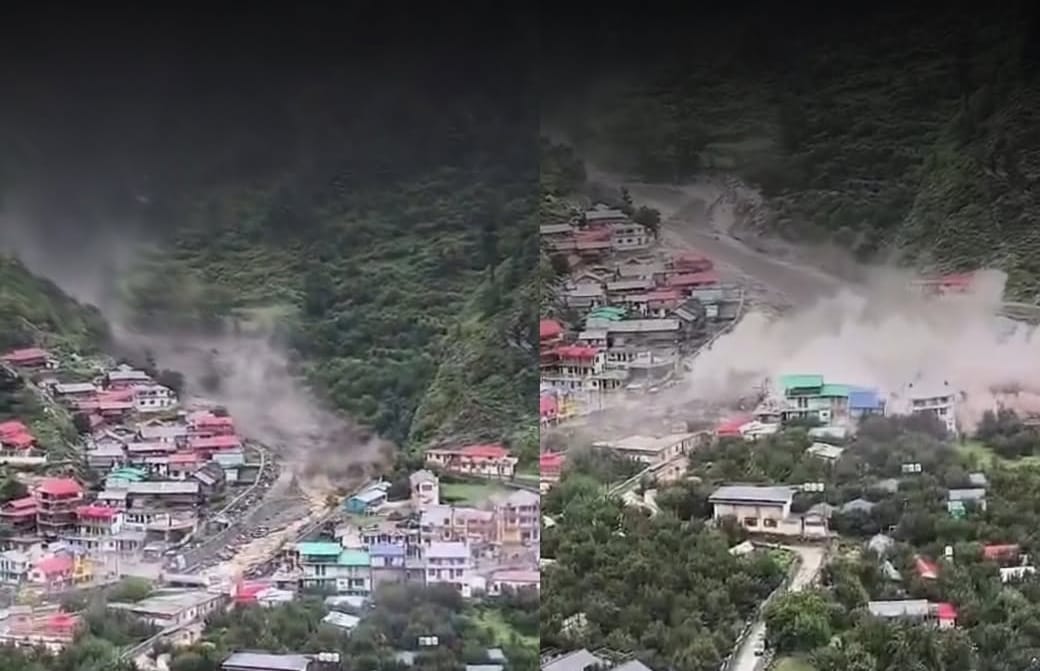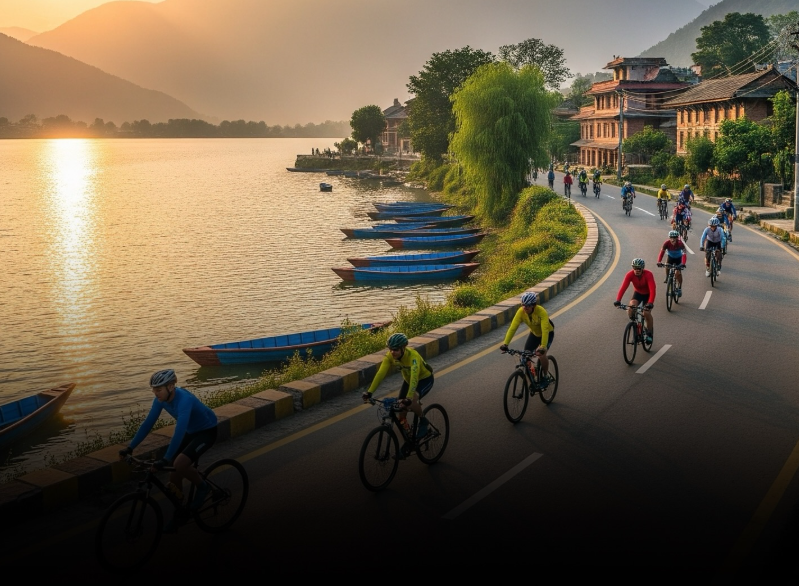24-Hour Updates
National News

Kidney Trafficking Scandal Shocks Sindhuli
Deceived and Exploited: A Sinister Plot Uncovered. In a chilling case, police in Sindhuli are investigating a kidney trafficking ring that lured victims with fake promises of hotel jobs in India. On 21 Shrawan 2082 BS, Khilbahadur Bhujel, a resident of Sindhuli, filed a complaint exposing this horrific scam. He was promised a lucrative job, but instead faced exploitation and illegal kidney removal. This shocking revelation has sent ripples through the community, highlighting the dangers of human trafficking. Authorities suspect a well-organized criminal network is behind the operation, preying on vulnerable individuals seeking better opportunities. Arrests Made, But the Network Runs Deep The police have acted swiftly, arresting three suspects linked to the trafficking gang. These individuals are believed to be part of a larger network that operates across borders. Investigators are working tirelessly to uncover the full extent of this illegal organ trade. So far, only one other victim has come forward, but authorities fear many more may have been exploited. The scam targeted desperate job seekers, exploiting their trust with false promises of stable employment. The arrested suspects are under interrogation, and police are piecing together clues to dismantle the criminal operation. A Call for Victims to Speak Out Authorities are urging other victims to come forward and report their experiences to aid the investigation. The police emphasize that every report is crucial to stopping this trafficking ring and bringing justice to those affected. By sharing their stories, victims can help expose the gang’s tactics and prevent further exploitation. The community is encouraged to stay vigilant and report any suspicious job offers, especially those promising work abroad. This ongoing investigation aims to protect vulnerable individuals and end the organ trade racket.
National 360

Shocking Bone Trade Uncovered at Pashupatinath Aryaghat
In a disturbing incident at Pashupatinath Aryaghat, one of Nepal’s holiest cremation sites, police have detained two men for allegedly selling bones from a cremated body. The suspects, apprehended after a tip-off, are accused of profiting from the sacred site by offering human remains for Rs 500. Authorities have been granted permission to hold the men in custody for seven days to investigate this unprecedented case. The discovery has shocked devotees and locals, raising questions about the sanctity of the revered Hindu temple complex. The men allegedly collected ashes and bones from the cremation grounds at Aryaghat, where families perform last rites for their loved ones. Police suspect the human remains were sold to individuals for ritualistic purposes or other unknown reasons. While the motive remains unclear, the act has sparked outrage among the community, who view the site as a place of spiritual significance. The investigation is focused on uncovering how long this illegal trade has been occurring and whether others are involved. So far, the buyers of the bones have not been identified, complicating the case. Authorities are intensifying efforts to trace these individuals, with forensic teams examining the remains to gather more evidence. The police are also questioning the suspects to determine if this was an isolated incident or part of a larger network. The community is urging stricter oversight at Pashupatinath to prevent such acts in the future, as trust in the sacred site hangs in the balance.
National 360

Nepal Government Plans New Law to Secretly Listen to Phone Calls and Messages
The Nepal government is planning a new secret intelligence law. This law would let spy workers secretly check people's phone calls, messages, and other talks. It is called the National Intelligence and Investigation Bill. The government wants to give this bill to the big meeting house soon. But Nepal's rules book, the constitution, has Article 28. It says everyone has a right to keep their talks private. Why do they want this law? The leaders say it is to keep the country safe. If bad things might happen, like from other countries' spies, they need to listen in. The bill lets the spy boss say yes to secret monitoring if it is very important. They can tap phones, read messages, and watch computer talks. There will be a new group called the counter-intelligence wing. It will fight against foreign spies and bad plans. This is not the first time. Six years ago, in 2019, they tried a like law. But many people got mad and said no. So, they stopped it. In 2020, a group called Human Rights Watch said such laws are bad. They let spies do things without a judge saying okay. This breaks privacy rights and can scare people from talking freely. Now, the government is trying again. The bill is open for people to say what they think. Then, it goes to more offices and the big meeting. If it passes, spy workers can link to phone companies and get help to listen in. They promise to use it only when really needed, like if the country is in danger. But many worry. A lawyer said it goes against the constitution. People might feel watched all the time. Moms and dads talking on phones, kids sending messages – all could be heard by spies. Is that fair? The law says yes for safety, but others say no, privacy is more important. Nepal is a pretty country with mountains. But now, this surveillance law is making news. Leaders like Prime Minister KP Sharma Oli want it to stop bad guys. Groups like Human Rights Watch ask to change it. Add rules so a judge must say yes first. What happens next? The bill might change if people speak up. Everyone in Nepal should know their privacy rights. Talk to friends and family. Stay safe, but keep your talks your own. This law could make Nepal stronger against spies. But at what cost? We will watch and see.
National 360

Tribhuvan International Airport Stops Giving Visitor Passes After Unfairness Complaints
The Tribhuvan International Airport in Kathmandu, Nepal, has made a big change. It stopped giving out visitor passes for the international building. This happened on August 12, 2025. Before, people could get these passes to go inside the airport to say hello or goodbye to family and friends who are flying. Why did they stop? Many people complained. They said the visitor passes were given only to those with special friends or connections. Others who needed them could not get any. This was not fair. The airport boss, Hansraj Pandey, said this is why they decided to stop. He is the General Manager. He wants everyone to have the same chance. No more special treatment. The airport is called Tribhuvan International Airport. It is the biggest in Nepal. Many planes come and go every day. People from all over the world fly there. Before, families liked to go inside to wave goodbye or hug hello. Now, they must do that outside the building. This might make some sad, but it helps keep things fair and safe. What are visitor passes? They are like tickets for non-flyers. They let you enter the terminal to help or see loved ones. But now, no more. The change started right after August 11. A group called the TIA Facilities Committee said yes to this rule. Is there help for those who need it? Yes! The airport set up a special desk. It is for old people, those who can't walk well, moms with babies coming, and little kids. They can get help like wheelchairs from airlines. Just ask the airline. Also, remember to follow bag rules. Don't bring too much stuff. This change is good for safety too. With fewer people inside, the airport is less crowded. Workers can do their jobs better. Planes can come and go on time. Nepal's airport wants to be like other big airports around the world. They follow rules to keep everyone safe. What do people think? Some say it's okay because it's fair. Others miss going inside. One mom said, "I wanted to help my son with his bags, but now I wait outside." But the airport says plan ahead. Say goodbyes at home or outside. In the past, the airport stopped passes during sick times like COVID. That was in 2020 and 2022. But now, it's because of the complaints. It's not about sickness. It's about being fair to all. Tribhuvan International Airport is old. It started in 1955 as Gauchar Airport. Then named after a king in 1964. It connects Nepal to Asia, Middle East, and more. Millions fly there each year. If you are flying soon, check the rules. No visitor passes means plan your trip well. Talk to your airline for help. This change makes the airport better for everyone. Fair play is important!
National 360

Crisis in Rupandehi Jail: Lamichhane’s Plight
Locked in a stifling cell, Rabi Lamichhane faces harsh realities in Rupandehi jail. The National Human Rights Commission (NHRC) inspection exposed shocking conditions: his cell had a window blocked by plywood, no air conditioning, and relied on large fans for relief. Overcrowding packed inmates tightly, while filthy toilets sparked serious human rights concerns. The NHRC’s intervention forced jail authorities to unblock the window, but the broader issues of poor ventilation and cramped spaces remain unresolved, highlighting a systemic failure in Nepal’s prison system. Meanwhile, Lamichhane’s troubles extend beyond jail. A Judicial Council complaint accuses him of interfering in judicial processes, submitting misleading petitions, and masterminding financial fraud through political and media influence. These allegations paint a picture of a powerful figure allegedly manipulating systems for personal gain. Despite multiple bail attempts, courts have kept him detained, signaling a tough stance on the accusations. The legal battles intensify as evidence and arguments pile up. Raswapa lawmakers rally in solidarity, framing Lamichhane’s detention as politically motivated. Their support fuels political tensions, with public opinion split between those who see him as a victim and others who demand accountability. The case has sparked debates about judicial independence and the role of media in shaping narratives. As Lamichhane remains behind bars, the spotlight stays on Rupandehi jail’s conditions and the unfolding legal drama, with Nepal watching closely.
National 360

NHRC Finds Bad Conditions in Rabi Lamichhane's Prison Cell
In Nepal, a group called the National Human Rights Commission (NHRC) went to check a prison where a man named Rabi Lamichhane is staying. Rabi Lamichhane is a famous person who is in jail right now. The NHRC wants to make sure people in jails are treated fairly and kindly, like everyone should be. The NHRC looked at Rabi Lamichhane's cell. They saw there is no air conditioning. That means no cool air machine to help when it's hot. The window in the cell is sealed, which means it's closed tight and no fresh air can come in. Fresh air is important because it helps us breathe well and stay healthy. A lady from the NHRC named Lili Thapa talked about what they found. She said the prison is too full of people. This is called overcrowded. When a place is overcrowded, there are too many people in a small space, like too many kids in one classroom. It makes things hard for everyone. Also, there are not enough toilets for all the people in the prison. The toilets that are there are in very bad shape. They are dirty and broken. Imagine if your bathroom at home was always yucky and didn't work right. That would not be nice, right? People in prison need clean toilets to stay healthy and feel okay. The bosses at the prison explained why the window was sealed. They said it was for safety, to keep everyone secure. But when the NHRC asked them to open it, they said yes. Now, Rabi Lamichhane and others can get some fresh air. The NHRC thinks the prison needs big changes. They want better things like more space, clean toilets, and good care for all the people inside. Human rights mean treating everyone nicely, even if they are in jail. Jails should help people learn from mistakes, not make them sick or sad. Why is this important? In Nepal, many prisons have problems like this. Overcrowded places can make people fight or get ill. The NHRC helps fix these by talking to the government. They check jails to see if rules are followed. Rules say jails must have fresh air, clean water, and enough room. Rabi Lamichhane's case shows us that even famous people face these issues. He is in jail because of some problems with money, but everyone deserves fair treatment. The NHRC will keep watching to make sure things get better. Kids, remember: Human rights are for all. If we see something unfair, we can tell grown-ups. Groups like the NHRC work hard to make the world kinder. Let's hope Nepal's prisons become safer and cleaner soon. This visit by the NHRC is a good step. It reminds us that prison life should not be too hard. With better facilities, people can think about their actions and come back to society stronger. The NHRC said they will tell the leaders about what needs to change. Maybe soon, all prisons will have air conditioning, open windows, and nice toilets. In the end, caring for people in prison helps everyone. It makes our country fairer. What do you think? Should jails be like schools that teach good things? Yes! Let's support groups like the NHRC for a better Nepal.
National 360
International News

Bipin Joshi’s Family Journeys to Free Him
A mother, Padma Joshi, and her daughter, Pushpa Joshi, from Nepal have flown to Israel to help save Bipin Joshi. Bipin is a young man taken by a group called Hamas while studying in Israel. This happened during a big attack on October 7, 2023. Bipin was learning about farming in a program called Learn and Earn, but now he is a hostage. The Israeli Embassy in Kathmandu, Nepal’s capital city, helped Padma and Pushpa get on a plane. The embassy paid for their trip so they could go fight for Bipin’s freedom. They left early on August 11, 2025, hoping to bring Bipin home. Padma and Pushpa are also going to the United Nations (UN). The UN is a place where people from many countries work together to solve big problems. The family wants international support to make Hamas let Bipin go. They hope the UN will help tell the world about Bipin’s story. Bipin Joshi was studying with 49 other Nepali students in Israel. During the attack, 10 of his friends died. Bipin tried to save others by throwing a grenade away, but Hamas took him. His family saw a video of him being taken, but they haven’t heard from him since. They are very scared and sad. Pushpa, who is 18, says Bipin is her best friend. She misses playing and laughing with him. Padma, his mother, wants her son back home. They’ve talked to Nepal’s leaders, but now they’re going to Israel and the UN to ask for more help. Why does this matter? Bipin Joshi didn’t do anything wrong. He was just learning. His family’s trip shows how much they love him. They want international support to free him from Hamas. The Israeli Embassy is helping because they care about hostages like Bipin. Kids, think about someone you love being far away and stuck. You’d want to help, right? That’s what Padma and Pushpa are doing. Human rights mean keeping everyone safe. The UN can help make that true. In Israel, the family will meet important people to talk about Bipin. They hope their voices will bring him home. Let’s hope Padma and Pushpa succeed. A kind world helps people like Bipin Joshi. Share his story to help his family!
International 360

Nepathya Lights Up Wembley with Epic Concert Return
On August 9, 2025, the famous Nepali folk-rock band Nepathya made a big comeback at the OVO Arena Wembley in London. More than 7,000 people came to see them play. It was like a big party full of songs and happy fans. Nepathya is a special band from Nepal. They mix old folk tunes with rock music. Their songs tell stories about Nepal's mountains, rivers, and people. The band's leader, Amrit Gurung, sings with a lot of heart. Fans love songs like "Resham" and "Jomsom Bazar ma." This was not the first time Nepathya played at Wembley. Back in 2013, they were the first Nepali band to perform there. That show also had over 7,000 fans. Some reports say it was even 8,000 or 10,000 people. It was a huge deal for Nepali music. Now, after 12 years, they came back. The organizers said it was a "historic milestone" for Nepali bands. The concert started at 8:00 PM. Doors opened at 6:00 PM. People from Nepal, the UK, and other places filled the seats. Many wore Nepali clothes or waved flags. The arena, which can hold up to 12,500 people, buzzed with excitement. Videos from the show show the crowd singing along. One video shared on social media captured the band playing "Resham" live. Fans danced and cheered. A post said, "Wembley is on fire!" Another fan thanked Nepathya for "Entertainment in London Wembley." The event was put together by BSK Entertainment and Parcha Production. They sold tickets online through sites like AXS and Ticket Tailor. Prices started low so many could come. Nepathya has played in many countries, but Wembley is special. It's where big stars like The Beatles and Queen have performed. Amrit Gurung shared a photo before the show. He said he felt humbled to be on that stage. "Thank you all for your love," he posted. The band wants to share Nepali culture with the world. This concert shows how popular Nepathya is. They have been making music for over 30 years. Their songs help people feel connected to home, even far away. For many Nepalis in the UK, it was like a trip back to Nepal. The night ended with big cheers. Fans left smiling, talking about the music. Nepathya's return to Wembley proves Nepali music can shine on the world stage. It was a win for everyone who loves good tunes and proud moments.
International 360

Devastation in Dharali: Flash Flood Wreaks Havoc
Nature’s fury unleashed! A massive cloudburst struck Dharali village in Uttarakhand, triggering a catastrophic flash flood that left the community in ruins. The deluge swept through the village with relentless force, washing away homes, shops, and cherished memories. The once-thriving village, known for its serene beauty and warm hospitality, now faces an uphill battle to recover from this tragedy. The flood’s destructive power was staggering. Reports confirm that 20 to 25 hotels and homestays, vital to the local economy, were completely swept away. Entire families lost their livelihoods as businesses crumbled under the raging waters. The disaster has claimed at least four lives, with dozens of people still missing. Rescue teams are working tirelessly, navigating treacherous conditions to locate survivors and provide aid to those stranded. While official reports on injuries are yet to be confirmed, the scale of the devastation suggests many may be hurt. The floodwaters tore through infrastructure, leaving roads impassable and communication lines severed. Villagers are grappling with the loss of their belongings and the uncertainty of what lies ahead. Emergency response teams are mobilizing, but the rugged terrain and ongoing risks complicate efforts. Dharali’s residents are known for their resilience, but this disaster has tested their spirit. The cloudburst and subsequent flood have left deep scars, both physical and emotional. As the village begins its long journey to rebuild, the focus remains on finding the missing, supporting the displaced, and restoring hope to a community shaken by nature’s wrath. More updates are expected as the situation unfolds.
International 360

Pokhara’s Lake-to-Lake Cycling Track to Boost Tourism
Pokhara, Nepal’s “capital of tourism,” is set to become a global hotspot for cycling lovers with its new Lake-to-Lake cycling track. The Pokhara Metropolitan City has created a master plan to build a 117-kilometer track that connects the city’s beautiful lakes, like Phewa, Begnas, and Rupa. This exciting project aims to bring more visitors to Pokhara and make it one of the world’s top places for cycling. The Lake-to-Lake cycling track will be built with nearly Rs 100 Crore (about $7.5 million) from the Asian Development Bank (ADB). The ADB has already visited the area and talked with local officials to plan the track. This funding will help create a smooth, safe, and eco-friendly path for cyclists to enjoy Pokhara’s stunning views of lakes, hills, and the Annapurna mountains. The 117-km track will link nine of Pokhara’s ten famous lakes, covering 18 of the city’s 33 wards. Cyclists can ride through green fields, small villages, and past temples, enjoying breathtaking sights of the Himalayas. The track is designed to be fun for both beginners and expert riders, with rest stops, viewpoints, and places to grab snacks or tea. It will take about two days to complete, with options for overnight stays along the way. This project is part of Pokhara’s goal to promote tourism and eco-friendly travel. By encouraging cycling, the city hopes to reduce car use, keep the air clean, and help local businesses grow. Women and local communities will also get new opportunities to sell food, crafts, or guide services to tourists. City officials say the Lake-to-Lake cycling track will make Pokhara a must-visit place for adventure seekers worldwide. The track is a big step toward making Pokhara a greener, more exciting destination. With the Asian Development Bank’s support, Pokhara is ready to welcome cyclists from all over, offering them a chance to explore its lakes and mountains in a fun, healthy way. Get ready to pedal through Pokhara’s paradise!
International 360

MrBeast’s Team Water Brings Clean Water to Nepal Village
In a small village in Nepal, getting clean drinking water was a big challenge. Villagers had to walk far to reach one water tap. They used cloth to try to clean the water, but it wasn’t safe. This made life hard and sometimes caused sickness. But now, YouTuber MrBeast and his Team Water project have changed that! MrBeast, whose real name is Jimmy Donaldson, worked with his team and a group called WaterAid to help. They built three huge water tanks, each holding 15,000 liters of water. That’s enough to fill a big swimming pool! These tanks have a special purification system that makes the water clean and safe to drink. Now, over 300 people in the village can get clean drinking water without walking far. The water tanks are built to last a long time—15 to 20 years! This means kids in the village can grow up with safe water to drink, cook, and wash. The project is part of Team Water, a big plan to raise $40 million to help 2 million people get clean drinking water worldwide. MrBeast teamed up with other YouTubers like Mark Rober and the Stokes Twins to make this happen. In a video, MrBeast showed how the tanks work and how happy the villagers are. Before, they spent hours walking for water. Now, they have clean water close to home. This saves time and keeps everyone healthier. The Stokes Twins, who helped in Nepal, said it reminded them of their childhood when their grandfather walked miles for water. Team Water is also helping places like Malawi, Colombia, and even the United States. They build things like wells and pumps to make sure everyone has safe water. MrBeast says, “No one should live without clean drinking water.” His fans are donating to help more villages, and YouTube is giving $2 million to support the project. This amazing work shows how people can team up to solve big problems. Thanks to MrBeast and Team Water, this Nepal village now has clean drinking water for years to come
International 360

Tragedy Strikes: Nepali Youth Dies in U.S. Accident
A heartbreaking loss shakes a community. On a quiet night in the U.S., 20-year-old Upendra Bohora from Rukum West, Nepal, lost his life in a tragic accident. Around 10 PM, while crossing the road to return home, he was struck by a vehicle. The sudden incident has left his family and friends in deep sorrow, grieving a vibrant young soul taken too soon. Upendra, known for his kindness and ambition, had moved to the U.S. with dreams of a brighter future. Hailing from the remote Rukum West district, he carried the hopes of his family. That fateful night, he was simply walking back home when the vehicle hit him. Despite efforts to save him, Upendra could not survive the injuries, leaving a void in the Nepali community abroad. The news has sent shockwaves through Rukum West and beyond. Locals remember Upendra as a cheerful youth who always helped others. His family, devastated by the loss, is struggling to cope. The incident raises concerns about road safety for pedestrians, especially at night. Authorities are investigating the accident, but no further details have been shared yet. The Nepali diaspora in the U.S. has come together to support Upendra’s family during this difficult time. Social media is filled with tributes, highlighting his warm smile and gentle nature. This tragedy serves as a reminder to stay cautious on roads and cherish every moment with loved ones.
International 360
Video Insights
No videos available right now
Check back later for updates.




